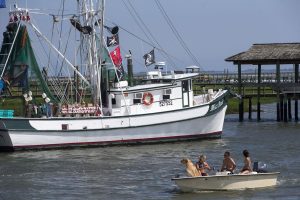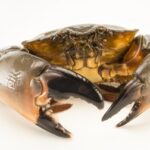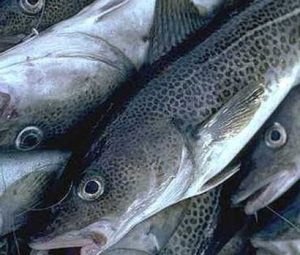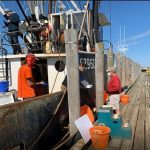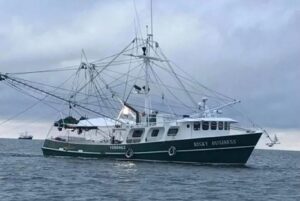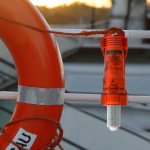Tag Archives: Apalachicola Bay
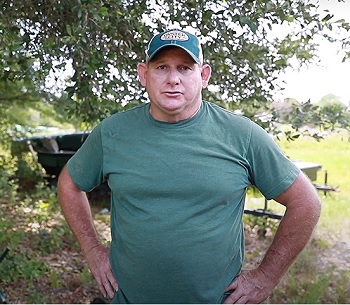
Supreme Court – Oystermen bemoan ‘disgraceful’ water wars decision
Shannon Hartsfield, a fourth-generation oysterman, fears debilitating drought in years to come after the Supreme Court yesterday found that Florida failed to show Georgia is cutting off south-flowing water. Hartsfield’s livelihood is in Apalachicola Bay, an estuary and lagoon along the Florida Panhandle that once hosted up to 400 bustling fishing boats. It is now closed to allow wild oyster reefs to regenerate after suffering through historically dry conditions in recent years that have slowed the inflows feeding the bay. Hartsfield, head of the Franklin County Seafood Workers Association, claims Georgia is also to blame for not allowing fresh water to flow down two rivers, past Atlanta’s suburbs and to the Gulf of Mexico. The Supreme Court disagreed. >click to read< 09:35

U.S. Supreme Court Rules Against Florida In Water Fight
After years of legal battling, the U.S. Supreme Court on Thursday unanimously rejected a lawsuit in which Florida argued Georgia has used too much water in a river system shared by the states. The 12-page ruling dismissed the lawsuit that Florida filed in 2013 after the oyster fishery collapsed in Franklin County’s Apalachicola Bay. Florida contended that Georgia drew too much water in the Apalachicola-Chattahoochee-Flint river system, which starts in northern Georgia and ends in Apalachicola Bay, and that more water should be directed to Florida. >click to read< >Supreme Court Ruling< 17:15
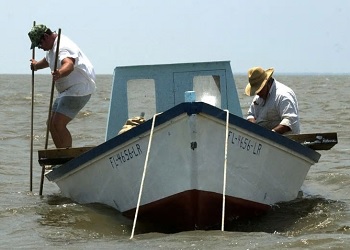
Florida warns of Apalachicola River’s ‘doom’ if Georgia isn’t forced to release more water, Looks to US Supreme Court
Warning that a special master’s recommendation would “spell doom” for the Apalachicola River, Florida wants the U.S. Supreme Court to require Georgia to share more water in a river system that links the two states. “The harm to the Bay’s oyster fisheries is undeniable. Apalachicola is renowned across America for its oysters, which account for 90% of Florida’s oyster harvest and 10% of the nation’s,” “What’s more, oysters, and oystering, have created a distinct way of life in Apalachicola passed down from generation-to-generation; whole communities depend on the fisheries for their economic livelihood. The oyster is to Apalachicola what the lobster is to many New England towns.” >click to read< 10:23
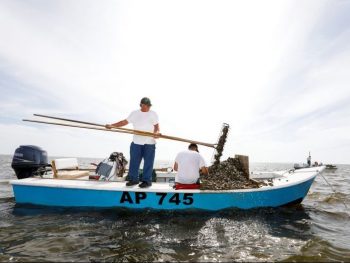
Water War: Florida and Georgia battle over water, as panhandle oystermen struggle to survive
Michael Dasher lowered a long pair of tongs into the water,,, His 53-year-old calloused hands grasped not just the 12-foot-long (3.7-m-long) tool but a way of life that Florida panhandle oystermen say is dying: Last year, they hauled in 16,000 pounds (7,257 kg) of oysters worth $130,000, according to state figures, a fraction of the 2012 catch of 3 million pounds (1.4 million kg) worth $8.8 million. “It’s like dumping sacks of rocks every day, but I don’t know how to do anything else,” said Dasher, who fretted that his 32-year-old son nicknamed “Little Mike,” a fifth-generation oysterman in the family, may also be its last. Their future may be determined by the U.S. Supreme Court, >click to read< 13:08
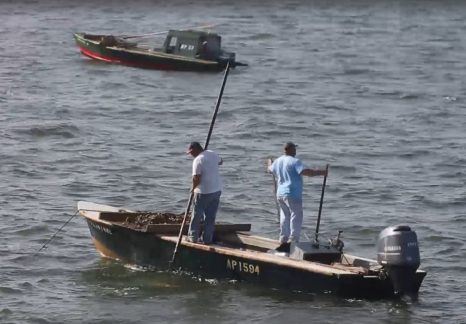
SHELL GAME
Saving Florida’s oysters is a shell game. The right answer is under three domes. Try to follow while the cups whizz by, shifting, swirling. Shell 1: An empty oyster bay. Unemployment. Poverty. But also history. Culture. Shell 2: A slick farming industry that could render the Florida oysterman finally, permanently extinct. Shell 3: The government, doling out money and regulations that might do more harm than good. In a place where everybody’s livelihood is yoked to the water, you have to follow the shells. T.J. Ward was born the year after his grandfather had the throat cancer surgery. T.J. never heard his natural voice. The seaman’s single clap would cut through the salt air on the docks of Apalachicola louder than words could. >click to read<15:00
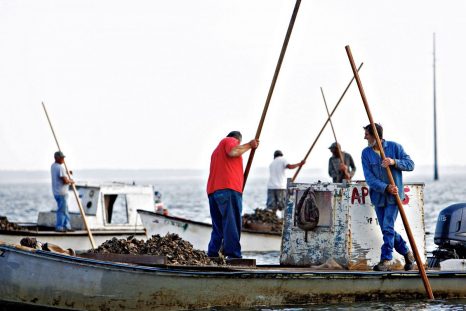
Six years after the oyster industry in Apalachicola Bay collapsed, scientists still don’t agree on what happened.
When Robert Livingston studied Florida’s Apalachicola Bay and River in the 1970s, he marveled at the ecosystem’s health. The bay produced a rich bounty of oysters, shrimp, fish, and crabs. Those animals, in turn, supported a thriving fishing community and seafood industry. But since then, the bay has declined. During a 2012 drought, the oyster fishery collapsed—and has not recovered. In the past, the ecosystem “was like a symphony orchestra,” says Livingston, an aquatic ecologist at Florida State University in Tallahassee. “Now it is not. It is dysfunctional.” >click to read< 09:35
Apalachicola Advocates, Fishermen Continue Fight For Water
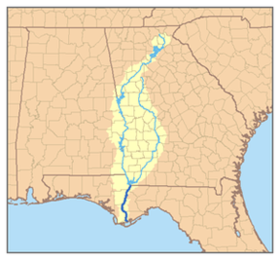 At the end of a river system that feeds booming Atlanta, and farms throughout Georgia and Alabama, sits Apalachicola Bay. The Army Corps of Engineers decides how much water flows here, where the river meets the Gulf. For years, Florida has argued it’s not getting its fair share, and the Bay and surrounding Franklin County are struggling because of it. T.J. Ward is a third generation fisherman who works at his family’s business in downtown Apalach. Over the past ten years, he’s seen the lack of freshwater take its toll, in the form of oyster predators. “One of those are, they call them snails, but we call them oyster drills, the locals do. And they eat oysters. And they’re even cannibalistic, so when they run out of oysters they’ll eat themselves. I mean they’re devastating. That’s one thing that’s killed the end of the bay that our oyster company’s on,” Ward said. Audio report, continue reading the story here 10:15
At the end of a river system that feeds booming Atlanta, and farms throughout Georgia and Alabama, sits Apalachicola Bay. The Army Corps of Engineers decides how much water flows here, where the river meets the Gulf. For years, Florida has argued it’s not getting its fair share, and the Bay and surrounding Franklin County are struggling because of it. T.J. Ward is a third generation fisherman who works at his family’s business in downtown Apalach. Over the past ten years, he’s seen the lack of freshwater take its toll, in the form of oyster predators. “One of those are, they call them snails, but we call them oyster drills, the locals do. And they eat oysters. And they’re even cannibalistic, so when they run out of oysters they’ll eat themselves. I mean they’re devastating. That’s one thing that’s killed the end of the bay that our oyster company’s on,” Ward said. Audio report, continue reading the story here 10:15
Georgia-Florida water fight now in hands of special master, Supreme Court to decide
 A month long trial aimed at settling a high-stakes water dispute between Georgia and Florida ended Thursday with a special master imploring both sides to negotiate a settlement. Special master Ralph Lancaster reminded both parties that there’s much to be lost by booming metropolitan Atlanta or by residents of tiny Apalachicola, Florida. “Please settle this blasted thing,” Lancaster said. “I can guarantee you that at least one of you is going to be unhappy with my recommendation — and perhaps both of you.” Florida blames the booming Atlanta metropolitan area and agriculture in Georgia for causing low river flows that have imperiled fisheries in Apalachicola Bay. Georgia contends there’s not enough evidence to support drastic action that could imperil the state’s economy. The lawsuit played out for a month with dozens of witnesses and hundreds of exhibits in Portland, Maine’s largest city, more than 1,000 miles from the disputed watershed. Georgia’s attorney, Craig Primis, and Florida’s attorney, Phil Perry, declined to comment after Lancaster implored them to return to the negotiating table. Read the story here 10:27
A month long trial aimed at settling a high-stakes water dispute between Georgia and Florida ended Thursday with a special master imploring both sides to negotiate a settlement. Special master Ralph Lancaster reminded both parties that there’s much to be lost by booming metropolitan Atlanta or by residents of tiny Apalachicola, Florida. “Please settle this blasted thing,” Lancaster said. “I can guarantee you that at least one of you is going to be unhappy with my recommendation — and perhaps both of you.” Florida blames the booming Atlanta metropolitan area and agriculture in Georgia for causing low river flows that have imperiled fisheries in Apalachicola Bay. Georgia contends there’s not enough evidence to support drastic action that could imperil the state’s economy. The lawsuit played out for a month with dozens of witnesses and hundreds of exhibits in Portland, Maine’s largest city, more than 1,000 miles from the disputed watershed. Georgia’s attorney, Craig Primis, and Florida’s attorney, Phil Perry, declined to comment after Lancaster implored them to return to the negotiating table. Read the story here 10:27
Water War: Florida and Georgia to blame for oyster loss
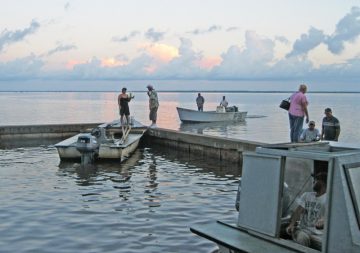 The 2010 Deepwater Horizon disaster threatened to spread oil from Texas to Florida and kill every shrimp, snapper and oyster in the Gulf of Mexico. Oystermen in Florida freaked out and, joined by fishermen from as far away as Texas, scraped every possible oyster — legal-sized or not — from the bottom of Apalachicola Bay. The still-poor condition of the bay and the oyster industry serves as the crux of the water war trial underway in this coastal New England town. Ralph Lancaster Jr., the special master assigned by the U.S. Supreme Court to remedy the 27-year-old interstate dispute, will ultimately decide who is to blame for the industry’s collapse. The trial’s first week ended Friday with a detailed examination of oyster fishing and Florida’s role in allowing the long-term degradation of the industry. It resumes Monday with the same focus. Florida says a lack of freshwater coming down the Apalachicola River from Georgia is to blame for the bay’s poor health. Georgia counters that over-fishing and lax management of oystering rules caused the damage. Read the story here 18:54
The 2010 Deepwater Horizon disaster threatened to spread oil from Texas to Florida and kill every shrimp, snapper and oyster in the Gulf of Mexico. Oystermen in Florida freaked out and, joined by fishermen from as far away as Texas, scraped every possible oyster — legal-sized or not — from the bottom of Apalachicola Bay. The still-poor condition of the bay and the oyster industry serves as the crux of the water war trial underway in this coastal New England town. Ralph Lancaster Jr., the special master assigned by the U.S. Supreme Court to remedy the 27-year-old interstate dispute, will ultimately decide who is to blame for the industry’s collapse. The trial’s first week ended Friday with a detailed examination of oyster fishing and Florida’s role in allowing the long-term degradation of the industry. It resumes Monday with the same focus. Florida says a lack of freshwater coming down the Apalachicola River from Georgia is to blame for the bay’s poor health. Georgia counters that over-fishing and lax management of oystering rules caused the damage. Read the story here 18:54
Apalachicola Bay commercial oyster bag limit lowered to 3 – Oyster reefs ‘in worse shape’
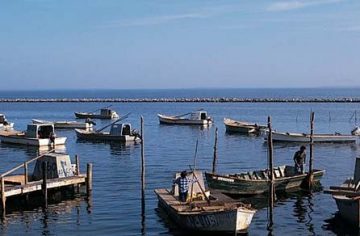 The commercial bag limit for oysters in Apalachicola Bay will be lowered to three bags per harvester during the winter season, Sept. 1 through May 31. Several other oyster conservation measures implemented previously will also continue this winter season. These changes are effective in all of Apalachicola Bay, including all waters of Indian Lagoon in Gulf County. The Florida Fish and Wildlife Conservation Commission (FWC) began implementing conservation measures in the fall of 2014 in an effort to help the Apalachicola Bay oyster population recover from the effects of low river flow. Apalachicola Bay oyster populations have significantly declined in recent years due to lack of sufficient fresh water flows in the Apalachicola River. Read the post here Oyster reefs ‘in worse shape’ – “We’re in worse shape. We’ve got to have river flow, that’s the first thing.” None of the SMARRT leadership seated at the front table disputed Estes’ findings. “I couldn’t get 100 legal oysters from there, and I moved around,” said SMARRT chair Shannon Hartsfield, referring to Dry Bar North and Green Point, reefs in the western portion of the bay, which in three separate surveys this summer yielded no more than 15 bags per acre to FWC surveyors. Read the article here 13:12
The commercial bag limit for oysters in Apalachicola Bay will be lowered to three bags per harvester during the winter season, Sept. 1 through May 31. Several other oyster conservation measures implemented previously will also continue this winter season. These changes are effective in all of Apalachicola Bay, including all waters of Indian Lagoon in Gulf County. The Florida Fish and Wildlife Conservation Commission (FWC) began implementing conservation measures in the fall of 2014 in an effort to help the Apalachicola Bay oyster population recover from the effects of low river flow. Apalachicola Bay oyster populations have significantly declined in recent years due to lack of sufficient fresh water flows in the Apalachicola River. Read the post here Oyster reefs ‘in worse shape’ – “We’re in worse shape. We’ve got to have river flow, that’s the first thing.” None of the SMARRT leadership seated at the front table disputed Estes’ findings. “I couldn’t get 100 legal oysters from there, and I moved around,” said SMARRT chair Shannon Hartsfield, referring to Dry Bar North and Green Point, reefs in the western portion of the bay, which in three separate surveys this summer yielded no more than 15 bags per acre to FWC surveyors. Read the article here 13:12
Fate of Apalachicola Bay, seafood industry, could hang on upcoming Supreme Court test
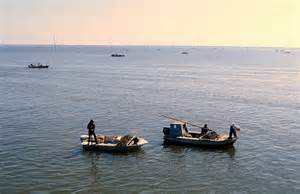 A special master of the U.S. Supreme Court has scheduled a trial for Oct. 31 in Florida’s lawsuit against Georgia over the river system they share — and with the latest in a series of droughts threatening, downstream users say the fate of the Apalachicola Bay could well be at stake. “That last drought we had — if we get just half of that, this bay may never be able to rebuild itself,” said Shannon Hartsfield, president of the Franklin County Seafood Workers’ Association. Florida sued Georgia in 2013, contending that Georgia’s overconsumption of water had reduced freshwater flows from the top of the Apalachicola-Chattahoochee-Flint River Basin, near metro Atlanta, to the Florida Panhandle, home of the Apalachicola Bay. Georgia denies it, arguing that Florida’s mismanagement of the bay is to blame for its woes. The Apalachicola Bay’s seafood industry was once a formidable economic driver for the region, producing 90 percent of Florida’s oysters and 10 percent of the nation’s supply. Its commercial and recreational fishing industries generated $200 million a year and supported 85 percent of the local population. But no more. Read the story here 13:17
A special master of the U.S. Supreme Court has scheduled a trial for Oct. 31 in Florida’s lawsuit against Georgia over the river system they share — and with the latest in a series of droughts threatening, downstream users say the fate of the Apalachicola Bay could well be at stake. “That last drought we had — if we get just half of that, this bay may never be able to rebuild itself,” said Shannon Hartsfield, president of the Franklin County Seafood Workers’ Association. Florida sued Georgia in 2013, contending that Georgia’s overconsumption of water had reduced freshwater flows from the top of the Apalachicola-Chattahoochee-Flint River Basin, near metro Atlanta, to the Florida Panhandle, home of the Apalachicola Bay. Georgia denies it, arguing that Florida’s mismanagement of the bay is to blame for its woes. The Apalachicola Bay’s seafood industry was once a formidable economic driver for the region, producing 90 percent of Florida’s oysters and 10 percent of the nation’s supply. Its commercial and recreational fishing industries generated $200 million a year and supported 85 percent of the local population. But no more. Read the story here 13:17
Apalachicola Bay not included in Army Corps revised plan
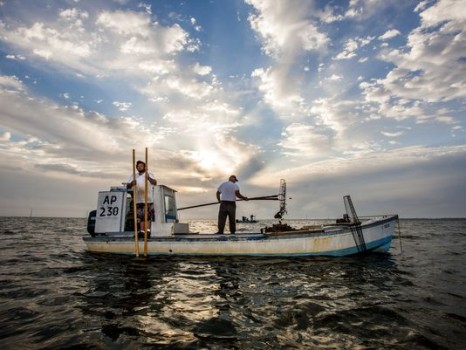 Monday is the only day Floridians will have a chance to comment in person on an update to the U.S. Army Corps of Engineers manual dictating the control of water through the Apalachicola-Chattahoochee-Flint River basin. It is the first time since 1958 the Corps has updated the manual for the three-river system, which starts in central Georgia and flows south to the Apalachicola Bay where a lack of freshwater has imperiled the ecosystem and the coastal economy that depends upon it. Read the rest here 20:48
Monday is the only day Floridians will have a chance to comment in person on an update to the U.S. Army Corps of Engineers manual dictating the control of water through the Apalachicola-Chattahoochee-Flint River basin. It is the first time since 1958 the Corps has updated the manual for the three-river system, which starts in central Georgia and flows south to the Apalachicola Bay where a lack of freshwater has imperiled the ecosystem and the coastal economy that depends upon it. Read the rest here 20:48
Battle to Restore Apalachicola Bay Heads to Congress
 The proposal is the latest development in Florida’s 25-year dispute with Georgia and Alabama over the Apalachicola-Chattahoochee-Flint river system, which the three states share. It also comes as Florida is suing Georgia in the U.S. Supreme Court, arguing that too much water is being siphoned off upstream, damaging the economically vital oyster industry in Apalachicola Bay. Until recently, its commercial and recreational fishing industries generated $200 million a year and supported the vast majority of the local population. Read the rest here 09:57
The proposal is the latest development in Florida’s 25-year dispute with Georgia and Alabama over the Apalachicola-Chattahoochee-Flint river system, which the three states share. It also comes as Florida is suing Georgia in the U.S. Supreme Court, arguing that too much water is being siphoned off upstream, damaging the economically vital oyster industry in Apalachicola Bay. Until recently, its commercial and recreational fishing industries generated $200 million a year and supported the vast majority of the local population. Read the rest here 09:57
These guys are pissed! Apalachicola Bay Oystermen rage at possible bay closure
 Frustrated over talk Apalachicola Bay might be shut down to oyster harvesting this winter, Franklin County seafood workers angrily confronted the president of their workers association at a meeting Friday evening. Barraged with catcalls and accusations from the standing-room-only audience, Shannon Hartsfield cut short his presentation regarding details of the upcoming $4.5 million shelling program, funded through a federal fishery disaster grant from the National Oceanic and Atmospheric Administration. Read the rest here 12:01
Frustrated over talk Apalachicola Bay might be shut down to oyster harvesting this winter, Franklin County seafood workers angrily confronted the president of their workers association at a meeting Friday evening. Barraged with catcalls and accusations from the standing-room-only audience, Shannon Hartsfield cut short his presentation regarding details of the upcoming $4.5 million shelling program, funded through a federal fishery disaster grant from the National Oceanic and Atmospheric Administration. Read the rest here 12:01
New Disaster Assistance Announced for Apalachicola Bay
 U.S. Senator Marco Rubio (R-FL) today welcomed the announcement made by the National Oceanic and Atmospheric Administration (NOAA) to disburse $6,310,216 of new disaster assistance funding aimed to restore the oyster fishery in Apalachicola Bay Florida. Read more here 17:31
U.S. Senator Marco Rubio (R-FL) today welcomed the announcement made by the National Oceanic and Atmospheric Administration (NOAA) to disburse $6,310,216 of new disaster assistance funding aimed to restore the oyster fishery in Apalachicola Bay Florida. Read more here 17:31Small Business Administration has approved an economic injury declaration for Apalachicola Bay commercial oyster fishery
 APALACHICOLA, Fla. (AP) – The U.S. Small Business Administration has approved an economic injury declaration Gov. Rick Scott requested for parts of the Florida Panhandle affected by the collapse of the commercial oyster fishery. more@local15tv 11:51
APALACHICOLA, Fla. (AP) – The U.S. Small Business Administration has approved an economic injury declaration Gov. Rick Scott requested for parts of the Florida Panhandle affected by the collapse of the commercial oyster fishery. more@local15tv 11:51
Water War: State of Florida Files Suit With Georgia Over Apalachicola Bay
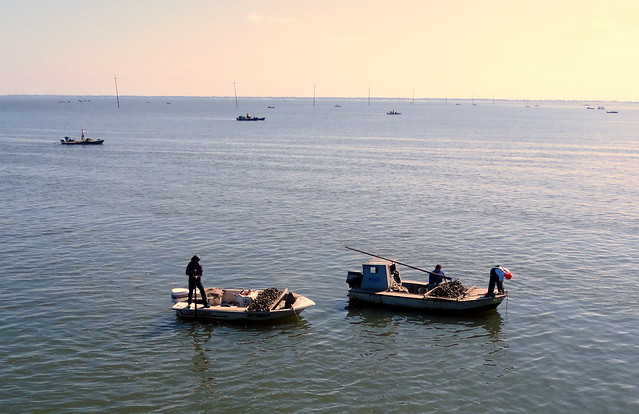 TAMPA, FL – Today, Florida Governor Rick Scott and Attorney General Pam Bondi announced that the State of Florida has filed suit against Georgia to stop its unchecked and growing consumption of water that continues to harm the families of Northwest Florida. more@wctv 17:54
TAMPA, FL – Today, Florida Governor Rick Scott and Attorney General Pam Bondi announced that the State of Florida has filed suit against Georgia to stop its unchecked and growing consumption of water that continues to harm the families of Northwest Florida. more@wctv 17:54
Our View: Disaster relief — so close and yet so far
![]() The list of fisheries disasters grew last week with the addition of Florida’s oyster industry, blamed mostly on diminishing freshwater flow into Apalachicola Bay due to drought. You could plug in “groundfish,” “Massachusetts” and “warming ocean” into the news reports and hardly tell the difference. The Northeast, Alaska and Mississippi all joined the list last year, but budget talks couldn’t get $150 million in disaster funds through for the fisheries because of Republican opposition. more@southcoasttoday01:55:47
The list of fisheries disasters grew last week with the addition of Florida’s oyster industry, blamed mostly on diminishing freshwater flow into Apalachicola Bay due to drought. You could plug in “groundfish,” “Massachusetts” and “warming ocean” into the news reports and hardly tell the difference. The Northeast, Alaska and Mississippi all joined the list last year, but budget talks couldn’t get $150 million in disaster funds through for the fisheries because of Republican opposition. more@southcoasttoday01:55:47
U.S. Secretary of Commerce Penny Pritzker today declared a commercial fishery failure – We know what that mean’s. Nothing!

“We understand the economic significance this historic oyster fishery has for fishermen and related businesses in the panhandle of Florida,” said Secretary Pritzker. more@wctv
The Florida Fish and Wildlife Conservation Commission is laying the blame – Oystermen React to the Report

The Florida Fish and Wildlife Conservation Commission is laying the blame for the oyster crisis in Franklin County, squarely on the US Army Corps of Engineers. In their final report this week to the National Marine Fisheries, wildlife experts say the lack of fresh water coming out of the Apalachicola River is killing the oysters in Apalachicola bay. @wghj
Florida aquaculture officials take cautious approach to Apalachicola Bay aquaculture leases
 In a lengthy and detailed face-to-face meeting with local seafood industry leaders Monday afternoon, Florida aquaculture officials signaled they planned to take a cautious approach to opening up Apalachicola Bay to small oyster harvesting leases. continued@thetimes
In a lengthy and detailed face-to-face meeting with local seafood industry leaders Monday afternoon, Florida aquaculture officials signaled they planned to take a cautious approach to opening up Apalachicola Bay to small oyster harvesting leases. continued@thetimes
Congressional delegation battles to save Apalachicola Bay
News Service of Florida – This week, the U.S. Senate was the scene of the latest skirmish in a tri-state water dispute between Florida, Georgia and Alabama dating back to 1990. The Senate voted 83-14 to pass the 2013 Water Resources Development Act, after deleting a provision backed by Florida Sens. Bill Nelson and Marco Rubio that would have required Georgia to use less water from federal reservoirs for metro Atlanta’s drinking supply and release more to the other two states. Now the fight shifts to the U.S. House, as the seafood industry in Franklin County struggles to regroup after years of drought. continued
Apalachicola Bay-Franklin County Oysterman: “We’re going to lose everything we’ve ever worked for”
 “I don’t know how families are going to survive,” said his wife and fellow oysterman, Betty Shiver. For the oystering couple, making a decent living these days seems down right impossible. They say the Apalachicola Bay, known for its big beautiful oysters, isn’t producing. The cause? Perhaps a lack of fresh water, over harvesting, or even possible remnants of the BP oil spill. They just don’t know, but their situation grows dire. “A lot of people, all they do is depend on this bay out here oystering and if it’s not here they can’t make it, and it’s not here and everybody knows it’s not here,” said Mr. Shiver. Read More
“I don’t know how families are going to survive,” said his wife and fellow oysterman, Betty Shiver. For the oystering couple, making a decent living these days seems down right impossible. They say the Apalachicola Bay, known for its big beautiful oysters, isn’t producing. The cause? Perhaps a lack of fresh water, over harvesting, or even possible remnants of the BP oil spill. They just don’t know, but their situation grows dire. “A lot of people, all they do is depend on this bay out here oystering and if it’s not here they can’t make it, and it’s not here and everybody knows it’s not here,” said Mr. Shiver. Read More



































